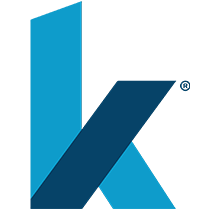SEO v. PPC: Choosing Which is Right for You
As a digital marketing agency, we are often asked what is better: Search Engine Optimization (SEO) or Pay-Per-Click (PPC). It is a debate as old as the internet itself, and will continue to be a topic of discussion because there is simply no right or wrong answer. The most important factor to be considered when evaluating the two, is your unique goals as a brand. They each have their pros and cons. Ideally, it is best to find a way to have both SEO and PPC working for your brand synergistically.
Organic SEO
SEO is based on optimizing your website and content to rank well in Google’s search engine through organic search results. Organically making your way up Google’s rankings is a long and difficult journey, but the end result is well worth the struggle. Once you have established yourself in the rankings, it is difficult for your competition to outrank you.
SEO is an attractive option because users have a tendency to be more trusting of organic search results. It is very common for users to simply skip over the first couple of ads (as a result of PPC) in Google’s search engine. Brand’s that rank well are seen as credible players in competitive industries. Perceived credibility leads to more website traffic, which leads to more brand awareness, which leads to potential sales, etc. You see where we’re going with this.
Another advantage to SEO, is that the ROI is typically much greater. SEO is certainly an investment; however, it tends to pay itself off in dividends over time. The appeal of SEO is that there is no direct cost related to it. With PPC you are paying for clicks on content, which has a tendency to add up quick. SEO, on the other hand, will cost either time or money to develop and publish content consistently to maintain your position in Google’s rankings.
Flawless SEO strategy is dependent on a constant flow of content that is relevant to both your brand and potential consumers. This implies that SEO is not quick or easy. The main downside to SEO is that it takes constant dedication to not only reach an ideal ranking, but also to maintain the top spot. There is no end point to SEO, it is an endeavor that spans the life of the business itself. It’s possible to maintain your rank once content is no longer being published, but over time, competition participating in SEO will begin to outrank you.
PPC
The ever elusive first page of Google. Something that some brands spend their entire existence chasing but never quite grasping. The quickest way to expedite this process is through PPC. PPC will give you direct exposure to your perceived target audience as well as giving you the tools necessary to quickly obtain the number one spot in Google’s rankings. Paid content is inherently dominant over organic searches because it is the first option in a Google Search.
Quick and precise, what else could an advertiser desire? PPC provides the means to quickly launch an advertising campaign and see results immediately. Paid search advertising will place you directly in front of potential customers through targeted keywords. This simply grants advertisers more control over the life of their product. PPC will give them more control over the content’s flow as well as who it is targeting. The ability to target consumers directly leads to your brand getting seen by the right audience.
Paying for clicks allows advertisers to have greater control over budget. Analytics can be reviewed instantly and budgets can be adjusted accordingly. There is a set cost associated to the campaign, unlike SEO where the cost is directly correlated with the amount of time spent creating content.
The biggest downfall to PPC is that if not carefully monitored, the cost of PPC can add up very quickly. Successful PPC needs proper analytics review and training. If advertising is aimed in the wrong direction, your efforts will have gone to waste and you could end up paying too much per click. Something else to consider, is that once you stop paying, the traffic stops coming. With PPC, the first page can fade away just as quickly as it can be obtained.
Why Not Both?
The optimal approach for some businesses, is an integrated strategy where SEO and PPC are at work simultaneously. Approaching advertising with a synergistic goal in mind can lead to the two supporting each other. This has potential to open many doors for your brand because your reach is no longer limited.
Keyword analytics from PPC can be implemented into SEO strategy. PPC gives advertiser’s a more detailed breakdown of an advertisements conversion rate and keyword success. This information can seek to further enhance your SEO approach. High-cost keywords can be implemented in organic SEO to avoid over-paying for clicks and allowing the advertiser to target high performing keywords without breaking the bank.
Choosing between SEO and PPC is largely circumstantial and different strategies are necessary for each unique brand. There is no right or wrong answer, there is simply the answer that will lead to the most traffic and desired search results.
Are you curious about how to implement SEO or PPC strategies into your business and marketing plan? Kraus Marketing specializes in SEO and PPC campaigns, serving companies in the New Jersey and New York City area. Inquire about our services by calling (973) 998-5742 or contact us online.

